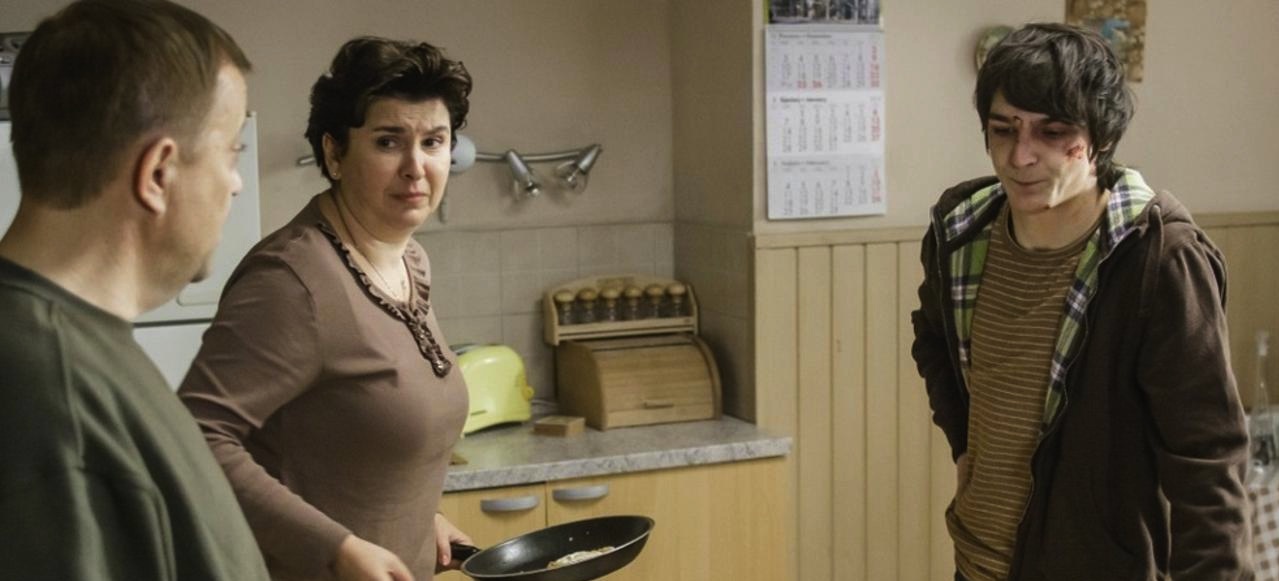
To say that These Are the Rules — Croatian director Ognjen Sviličić’s fifth feature film — is a pared-back film would be an understatement. Eschewing non-diegetic sound, non-naturalistic lighting and almost all camera movement, the film is nothing if not a subdued, disciplined affair. So bereft is Sviličić’s film of any kind of ornamentation or deviation from its exceedingly simple plot and premise that the director’s central conceit almost becomes a kind of absence of style, a complete removal of the his hand from the telling of the story. How effective one finds this kind of sober formal rigour may depend on how often one has been exposed to such a film in a festival setting, and make no mistake, there is no shortage of very similar films going round that inevitably end up on the SBS evening rotation. Though These Are the Rules certainly isn’t particularly unique in the current cinema landscape, Sviličić’s dedication to the minimal social realist aesthetic does produce some touching reflections on the family unit outside of its overarching neo-neo-realist narrative that ultimately make this a worthwhile film.
Set in modern day Zagreb, the film relates the story of a tragedy that befalls a working class family. Living in an apartment block that bears all the hallmarks of the classic austere socialist architecture that still defines the suburbs of countless Eastern European cities, the family comprises of father, Ivo (Emir Hadžihafizbegović) a bus driver, mother, Maja (Jasna Žalica), a stay at home mother, and their 17-year-old son Tomica (Hrvoje Vladisavljević) nearing the end of his schooling. Early one morning, Tomica comes home after a night out, and we find out that he’s been beaten and needs urgent medical attention.
Even from this quick sketch of the plot, it’s not difficult to tell how the narrative will balance personal tragedy with the social determinism of poverty, blending a drama on the micro level that is inescapably locked in to the inescapable machinations of macro social order. This is even gestured towards in the film’s opening sequence: a pair of establishing shots of the family’s drab apartment block — whose muted glassy textures are actually gorgeously captured by Girlhood cinematographer Crystel Fournier1 — is followed by a slow tilt downwards to reveal Tomica getting off a tram and walking into the building, his home. It’s a neat move, joining place with person, but moreover it speaks to Sviličić’s desire to craft his film as a political critique via shifts of scale and scope; that is, between the family unit and the social milieu in which they find themselves. As the film progresses and Tomica’s parents try to secure decent care for their son, the inadequacies of the healthcare system that they pass through become clear. The film’s conclusion is framed first and foremost as an inevitability due to the problems inherent to this social support system.
Beyond this somewhat played out social realist narrative, which has so far dominated the critical responses to the film,2 what elevates the film in my estimation is the relationship between the mother and father that is at the story’s centre. Though it’s Tomica’s injury that is the catalyst for the film’s narrative development, its after-effects are shown primarily through the reactions of his parents, who are given by far the majority of the film’s screen time. Their relationship is put to the forefront of the film, and we see how years of marriage has hardened into a mini theatre of petty squabbling, their domestic concerns (that their son hasn’t eaten enough, that the stove doesn’t work properly) becoming almost a refrain throughout the film. It is to Sviličić’s credit that so many of these domestic scenes are included, as they gain a certain gravitas later in the film when the parents are forced to confront the concerning developments with regards to their son’s health. True to the tone of the film, the changes in their behaviour are not immediately obvious, but come through in minute changes in speech and body language that are all the more effective for their nuance. By shifting the emotional weight onto the parents’ back and showing how they are able to abide hardship, Sviličić is able to infuse this social realist drama with a degree of intimacy that ultimately makes its social commentary more pointed and compelling.
Around the Staff
| Dominic Ellis | |
